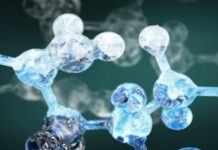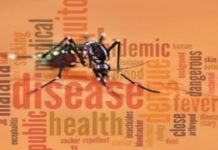Bones form an important part of our body without which we would be living like a vegetable. With various shapes and sizes, these valuable 206 bones support and protect the various organs of our body. But as we age, bones also age with time and it is important to have healthy bones which would help us lead a healthy life even in our old age. Below are the top 5 essentials which will help us have stronger and healthy bones.
Progesterone
The most important hormone for bone health, however, is not estrogen, but progesterone. Topical progesterone cream was studied by Dr. John Lee of Sebastopol, California. One hundred postmenopausal women were given natural progesterone cream to apply for twelve consecutive days of each month for three years. They were also given supplemental calcium and vitamins C and D, were encouraged not to smoke or drink and were told to exercise. The results were impressive: 63 of the 100 women in the study exhibited an increase in bone mass. Side effects of using natural progesterone were only positive: increase in energy and sex drive. Persons with all degrees of bone deterioration benefited remarkably from natural progesterone therapy.
Magnesium
Magnesium is also a very important mineral for bone health. Calcium cannot be laid down into bone without an adequate supply of all of the minerals needed. This includes magnesium, zinc, copper, manganese, boron, and silica. Although it only comprises 1% of bone, versus calcium, which comprises 20% of bone, magnesium plays an important role in keeping calcium from being excreted and helps the body to use calcium correctly. Some studies even point to magnesium intake as a stronger predictor of bone density than calcium intake. Taking calcium in the absence of adequate magnesium and other trace minerals will only increase the amount of calcium deposited in sites such as artery walls. Magnesium deficiency may cause osteoporosis. Magnesium deficiencies are common in osteoporotic patients, and low magnesium levels negatively affect estrogen metabolism. This can, in turn, have a weakening effect on bone mineralization.
Manganese
Manganese is a trace mineral that is very, important for the prevention of osteoporosis. Basketball star Bill Walton was sidelined with frequent fractures due to osteoporosis. His bone thinning was caused by a manganese deficiency. Supplement of manganese and other trace minerals reversed his condition. Most women do not get enough of this critical nutrient and could benefit from increased intake of nuts. They are a rich source of all minerals, including manganese.
Copper
Copper is a key supplement for bone health. Studies have shown that copper levels are lower in women who suffer leg fractures. Copper is needed for the manufacture of collagen in bones. Copper supplements may prevent the fractures and mortality associated with osteoporosis. Copper levels vary widely in women, and testing by a nutritionist is recommended before supplementing with copper.
Vitamin K
Vitamin K is needed to make a framework upon which a] bones are built. If you don’t eat enough green leafy vegetables the only food source for vitamin K—or the beneficial bacteria in your GI tract don’t make enough vitamin K, your bones will suffer. Some researchers believe that our requirements for vitamin K are higher than presently thought. Those concerned about bone health should eat as many leafy greens as possible. Those on antibiotics should increase their intake of green leafy vegetables or supplement with vitamin K. Broad-spectrum antibiotics such as tetracycline kill the beneficial bacteria that make vitamin K. Antibiotic use should always be followed by supplements of beneficial bacteria such as acidophilus and bifidobacterium. Vitamin K supplements of 100 to 500 milligrams per day are perfectly safe and may be beneficial for those who do not eat leafy greens or who undergo long-term antibiotic therapy.
-end-




































